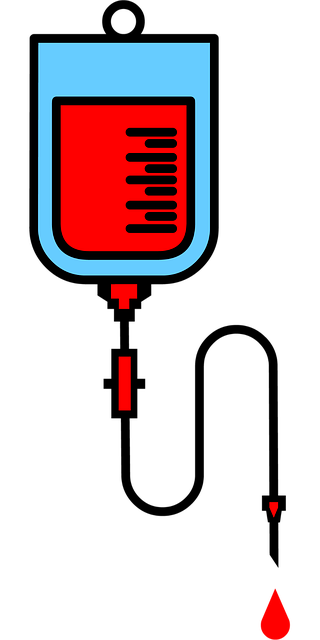Medical inquiry follow-ups are crucial for converting prospective patients into clients. A successful approach involves building rapport and trust through empathetic engagement, using a CRM to streamline interactions and minimize lead drop-off. Personalized follow-ups, addressing concerns, and providing educational resources enhance patient experiences and boost conversion rates. In the digital age, integrating CRM with valuable content allows for targeted communication, nurturing leads, and increasing informed decisions. Structured workflows ensure effective lead management, balancing timely follow-ups with education to guide prospects through their decision-making journey. Measuring conversion rates helps identify areas for improvement in patient acquisition strategies.
In today’s competitive healthcare landscape, effectively nurturing leads is key to practice growth. This strategic process goes beyond initial calls, encompassing a multi-faceted approach to engage prospective patients. From understanding medical inquiries in the first contact to personalized follow-ups and providing educational resources, each step plays a critical role in converting leads into loyal patients. Discover proven strategies for successful lead conversion through content engagement and meticulous analysis of medical inquiry follow-ups.
- Understanding Medical Inquiries: The Initial Contact
- Effective Call Strategies to Build Trust
- Providing Educational Resources for Informed Decisions
- Personalized Follow-Up Techniques for Conversion
- Nurturing Leads Through Content and Engagement
- Measuring Success: Conversion Rates and Analysis
Understanding Medical Inquiries: The Initial Contact

When prospective patients reach out with a medical inquiry, whether through a phone call or an online form, it’s crucial to handle their initial contact with care and understanding. This first interaction sets the stage for the entire patient conversion strategy. The goal is not just to answer questions but to build rapport and establish trust. A well-trained healthcare representative should aim to address concerns, provide preliminary guidance, and gather essential information to better understand the patient’s needs.
Effective medical inquiry follow-ups involve a multi-faceted approach. It requires a thoughtful balance between sharing relevant educational resources, offering personalized solutions, and maintaining open lines of communication. Using a CRM (Customer Relationship Management) system can optimize these efforts by tracking interactions, allowing for tailored follow-up sequences, and ensuring no lead is overlooked. This strategic process not only enhances the patient experience but also increases the likelihood of successful conversions.
Effective Call Strategies to Build Trust

Building trust is paramount when cultivating healthcare leads. Effective call strategies should focus on active listening, demonstrating expertise, and fostering open communication. During initial calls, it’s crucial to assess the prospect’s medical inquiry, addressing their concerns and questions comprehensively. This shows a commitment to understanding their unique needs, establishing credibility, and setting the foundation for a trusting relationship.
A well-structured follow-up process is integral to conversion strategy healthcare. Utilizing a CRM follow-up system ensures timely and personalized engagement. By providing valuable educational resources and tailoring conversations based on previous interactions, you can effectively move leads through the medical lead pipeline. This strategic approach not only enhances the patient experience but also increases the likelihood of converting interested prospects into actual patients.
Providing Educational Resources for Informed Decisions

In today’s digital era, providing educational resources is a powerful tool to engage and convert potential patients. When individuals have medical inquiries, they often seek information online before reaching out to healthcare providers. Offering comprehensive and easily accessible educational materials allows practices to address common concerns, dispel myths, and position themselves as trusted sources of knowledge. This strategic approach not only nurtures leads but also empowers them to make informed decisions.
A well-designed conversion strategy in healthcare involves leveraging a CRM (Customer Relationship Management) system for effective follow-up. By integrating educational resources with personalized communication, practices can enhance patient conversion optimization. For instance, sending relevant articles, videos, or webinars related to the patient’s initial inquiry, followed by a prompt call or message, shows dedication to their medical journey. This method ensures that leads feel supported and understood, increasing the likelihood of them transitioning from inquiry to becoming actual patients.
Personalized Follow-Up Techniques for Conversion

In the realm of healthcare marketing, personalized follow-up techniques are a game-changer when it comes to converting leads into patients. After an initial call or educational session, tailoring your approach to each prospect’s unique needs and medical inquiry is essential. This strategy involves a nuanced understanding of their concerns, questions, and individual health goals. By recognizing these factors, healthcare providers can craft targeted messages that resonate with potential patients, fostering trust and encouraging them to take the next step towards treatment or consultation.
A well-structured lead handling workflow, integrated with a robust CRM follow-up system, is crucial for managing this process effectively. The medical lead pipeline should be designed to nurture relationships, allowing healthcare professionals to stay engaged without being overly aggressive. Balancing timely follow-ups with educational content ensures that leads receive valuable information while also feeling supported throughout their decision-making journey, ultimately enhancing the chances of successful conversion.
Nurturing Leads Through Content and Engagement

In the competitive landscape of healthcare, nurturing leads is a strategic art that involves engaging potential patients at every step. Content creation plays a pivotal role in this process. By offering valuable and relevant information through blog posts, newsletters, or educational webinars, healthcare providers can spark medical inquiries and capture the interest of prospective patients. These initial interactions lay the foundation for building trust and establishing expertise.
Effective lead handling involves implementing a structured workflow that seamlessly integrates calls, personalized follow-ups, and continuous education. A Customer Relationship Management (CRM) system facilitates this process by tracking interactions and allowing for timely and relevant communication. Through strategic content and engagement, healthcare practices can guide leads through their journey, addressing concerns, providing solutions, and ultimately converting them into patients who benefit from their specialized care.
Measuring Success: Conversion Rates and Analysis

Measuring success is a critical component of any strategic process, and in healthcare marketing, it often revolves around converting leads into patients. The primary metric to track here is the conversion rate—the percentage of potential patients who progress from initial inquiry through to scheduling an appointment or procedure. This rate is a powerful indicator of your campaign’s effectiveness and can highlight areas for improvement within your medical lead pipeline.
By analyzing conversion data, you can gain valuable insights into patient conversion optimization. Identify at-risk points in the process, whether it’s low response rates during follow-ups or specific questions on a patient inquiry form that deter potential patients. Understanding these trends allows for targeted adjustments to your strategy, ensuring a smoother path from initial medical inquiry to treatment and fostering better engagement with your target audience.
